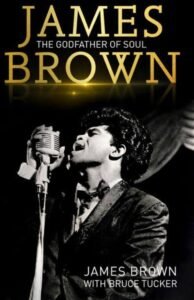James Brown: The Undisputed Godfather of Soul or Just a Flash in the Pan?

James Brown, known as the “Godfather of Soul,” is undeniably one of the most influential figures in the history of music. His contributions to the development of soul, funk, and rhythm and blues have shaped the course of modern music. But is he truly the godfather he’s often hailed as, or is this title a mere product of hype and myth? This debate has divided fans for decades.
Brown’s ability to infuse energy and passion into his performances is legendary. His live shows were more than concerts—they were electrifying, almost spiritual experiences. His raw, commanding presence on stage was unmatched, and he turned every performance into an event. His screams, sweat-drenched dancing, and frantic energy made him a one-of-a-kind showman. On top of this, he revolutionized music with his innovations in rhythm and timing. The “one” beat—a distinctive heavy downbeat that defines funk music—was his signature, creating an entirely new groove that would influence countless artists across genres.
However, despite his undeniable influence, there’s a growing contingent of fans who argue that Brown’s legacy is exaggerated. His mastery of rhythm may be unparalleled, but some critics argue that his musical innovation was built on the backs of other talented musicians, like his band, the J.B.’s, and collaborations with lesser-known artists. The musicians in his band often go underappreciated, despite being the real architects of his sound. Moreover, his personal life, particularly his treatment of women and the accusations of abuse, cast a shadow over his otherwise iconic status.
Another point of contention is the fact that Brown’s music can be considered one-dimensional. While his rhythm and grooves were groundbreaking, some argue that his lack of musical range—a reliance on repetitive basslines, horns, and vocal screeches—limits his appeal. For all his innovations, critics claim that James Brown didn’t push the boundaries of music the way other artists like Stevie Wonder or Prince did, both of whom were equally influential in their own right. In this sense, Brown’s music was a reflection of a specific time and place, while artists that came after him were more adept at blending genres and expanding the musical landscape.
Additionally, his controversial persona both on and off the stage has left many wondering if his reputation is a result of hype rather than genuine artistic brilliance. While his contributions to soul and funk are irrefutable, his aggressive business practices, feuds with fellow musicians, and behavior as a self-proclaimed “king” of soul have made it difficult for some to fully embrace him as the legend he’s considered by many to be.
So, is James Brown the undisputed Godfather of Soul? Or is he a controversial figure whose fame was propelled by calculated image-building rather than true musical revolution? While he undoubtedly left an indelible mark on music history, it’s clear that for every devoted fan, there’s an equally vocal critic ready to challenge his place at the top of the musical throne.

